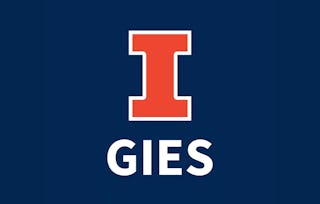How can innovators understand if their idea is worth developing and pursuing? In this course, we lay out a systematic process to make strategic decisions about innovative product or services that will help entrepreneurs, managers and innovators to avoid common pitfalls. We teach students to assess the feasibility of an innovative idea through problem-framing techniques and rigorous data analysis labelled ‘a scientific approach’. The course is highly interactive and includes exercises and real-world applications. We will also show the implications of a scientific approach to innovation management through a wide range of examples and case studies.

A Scientific Approach to Innovation Management
Ends soon: Gain next-level skills with Coursera Plus for $199 (regularly $399). Save now.

A Scientific Approach to Innovation Management



Instructors: Alfonso Gambardella
9,720 already enrolled
Included with
(81 reviews)
Skills you'll gain
Details to know

Add to your LinkedIn profile
See how employees at top companies are mastering in-demand skills

There are 5 modules in this course
We provide a general discussion of innovation as problem-solving and we link the discuss the building blocks of the scientific approach to innovation decisions – from how to formulate the problem, to how to formulate the hypotheses and the theory, and how to test them. The whole discussion will be framed and applied to concrete managerial problems, including a discussion of the specific managerial tools that facilitate the application of a scientific approach to innovation management.
What's included
15 videos3 readings1 assignment1 discussion prompt
We provide more details about the scientific approach and we introduce probabilities to understand how and why certain decisions lead to some outcomes instead of others and how to make better decisions. We also focus on how to formulate and test hypotheses in practice, and how to interpret these tests. We finally discuss how to design and run experiments. NB: some videos may contain a downloadable database; please, download it and follow the in-video instructions
What's included
17 videos3 readings3 assignments1 discussion prompt
We cover the basics of data analysis, beginning with the distinction between correlation and causality in the analysis of data. We also teach how to make predictions using regression analysis and link these methods to the scientific approach, showing what role these analyses play, how they help to make scientific decisions and why. We complement this with real examples of companies using data to make innovation decisions. We close by discussing how to interpret these analyses and results critically to make sure we understand what we really learn from the analyses and when, how and why we should interpret our results cautiously and critically.
What's included
8 videos3 readings1 assignment1 discussion prompt
This is s a more advanced part in which we discuss causality and provide the students with some broad exposure to big data and machine learning, and we discuss what they can do for managerial decisions.We provide a general wrap-up and conclusion of the course, including a discussion of when the scientific approach is most appropriate or has limitations. This helps to see when to apply it, or when to apply other approaches, including our own gut feelings. NB: some videos may contain a downloadable database; please, download it and follow the in-video instructions
What's included
7 videos3 readings1 assignment1 discussion prompt
What's included
1 peer review
Instructors


Offered by
Explore more from Business Strategy
 Status: Preview
Status: PreviewUniversity of Leeds
 Status: Free Trial
Status: Free Trial Status: Free Trial
Status: Free TrialTecnológico de Monterrey
 Status: Free Trial
Status: Free TrialUniversity of Illinois Urbana-Champaign
Why people choose Coursera for their career




Learner reviews
81 reviews
- 5 stars
74.07%
- 4 stars
18.51%
- 3 stars
4.93%
- 2 stars
2.46%
- 1 star
0%
Showing 3 of 81
Reviewed on May 13, 2024
amazing and very useful course in growing one's career graph professionally
Reviewed on Dec 1, 2019
Establishing fundamental Ideas about making a solid decision in the world of uncertainty and ambiguity.
Reviewed on Apr 10, 2022
Really good course that helped me de-mystifying several areas within innovation management.

Open new doors with Coursera Plus
Unlimited access to 10,000+ world-class courses, hands-on projects, and job-ready certificate programs - all included in your subscription
Advance your career with an online degree
Earn a degree from world-class universities - 100% online
Join over 3,400 global companies that choose Coursera for Business
Upskill your employees to excel in the digital economy
Frequently asked questions
To access the course materials, assignments and to earn a Certificate, you will need to purchase the Certificate experience when you enroll in a course. You can try a Free Trial instead, or apply for Financial Aid. The course may offer 'Full Course, No Certificate' instead. This option lets you see all course materials, submit required assessments, and get a final grade. This also means that you will not be able to purchase a Certificate experience.
When you purchase a Certificate you get access to all course materials, including graded assignments. Upon completing the course, your electronic Certificate will be added to your Accomplishments page - from there, you can print your Certificate or add it to your LinkedIn profile.
Yes. In select learning programs, you can apply for financial aid or a scholarship if you can’t afford the enrollment fee. If fin aid or scholarship is available for your learning program selection, you’ll find a link to apply on the description page.
More questions
Financial aid available,
¹ Some assignments in this course are AI-graded. For these assignments, your data will be used in accordance with Coursera's Privacy Notice.

